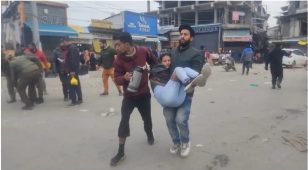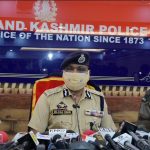India, Jammu And Kashmir Constitutions Worked 'hand In Hand' For 70 Years, Petitioners Challenging Abrogation Of Article 370, Tell SC firstpost.com
On day four of the Supreme Court hearing on petitions challenging the abrogation of Article 370 that accorded special status to Jammu and Kashmir, petitioners sought to emphasise the powers vested with the Assembly of the erstwhile state as was defined in the Instrument of Accession when the region joined India in 1947. They also argued that the Indian Constitution and Jammu and Kashmir's constitution had been working in tandem through Article 370. India, Jammu and Kashmir constitutions worked for hand in hand for 70 years, petitioners challenging abrogation of Article 370, tell SC
Advocate Sanjay Parekh and the Jammu and Kashmir Bar Association, who presented arguments before a five-judge Constitution Bench headed by Justice NV Ramana on Wednesday, submitted that the basis of the IOA was to safeguard the sovereignty of the region. Parekh used sections of the debates of the Constituent Assembly to submit that the writers of the Indian Constitution — including Sardar Vallabhbhai Patel and N Gopalaswami Ayyangar — intended that the "will of the people be of paramount importance in Jammu and Kashmir", and that any topic of governance in the region could be enforced only after consulting the state government.











Leave Your Comment